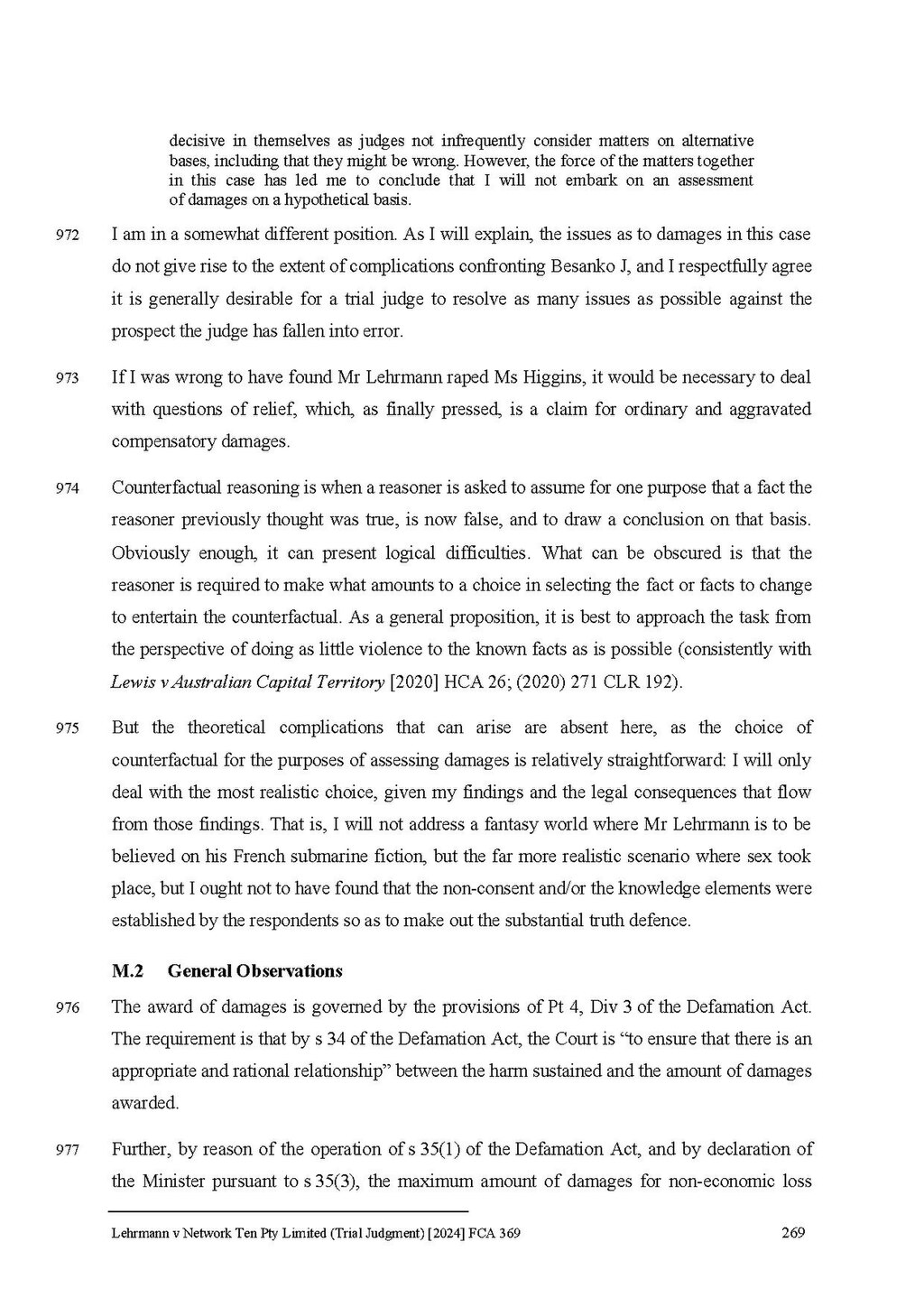decisive in themselves as judges not infrequently consider matters on alternative bases, including that they might be wrong. However, the force of the matters together in this case has led me to conclude that I will not embark on an assessment of damages on a hypothetical basis.
972 I am in a somewhat different position. As I will explain, the issues as to damages in this case do not give rise to the extent of complications confronting Besanko J, and I respectfully agree it is generally desirable for a trial judge to resolve as many issues as possible against the prospect the judge has fallen into error.
973 If I was wrong to have found Mr Lehrmann raped Ms Higgins, it would be necessary to deal with questions of relief, which, as finally pressed, is a claim for ordinary and aggravated compensatory damages.
974 Counterfactual reasoning is when a reasoner is asked to assume for one purpose that a fact the reasoner previously thought was true, is now false, and to draw a conclusion on that basis. Obviously enough, it can present logical difficulties. What can be obscured is that the reasoner is required to make what amounts to a choice in selecting the fact or facts to change to entertain the counterfactual. As a general proposition, it is best to approach the task from the perspective of doing as little violence to the known facts as is possible (consistently with Lewis v Australian Capital Territory [2020] HCA 26; (2020) 271 CLR 192).
975 But the theoretical complications that can arise are absent here, as the choice of counterfactual for the purposes of assessing damages is relatively straightforward: I will only deal with the most realistic choice, given my findings and the legal consequences that flow from those findings. That is, I will not address a fantasy world where Mr Lehrmann is to be believed on his French submarine fiction, but the far more realistic scenario where sex took place, but I ought not to have found that the non-consent and/or the knowledge elements were established by the respondents so as to make out the substantial truth defence.
M.2General Observations
976 The award of damages is governed by the provisions of Pt 4, Div 3 of the Defamation Act. The requirement is that by s 34 of the Defamation Act, the Court is "to ensure that there is an appropriate and rational relationship" between the harm sustained and the amount of damages awarded.
977 Further, by reason of the operation of s 35(1) of the Defamation Act, and by declaration of the Minister pursuant to s 35(3), the maximum amount of damages for non-economic loss
